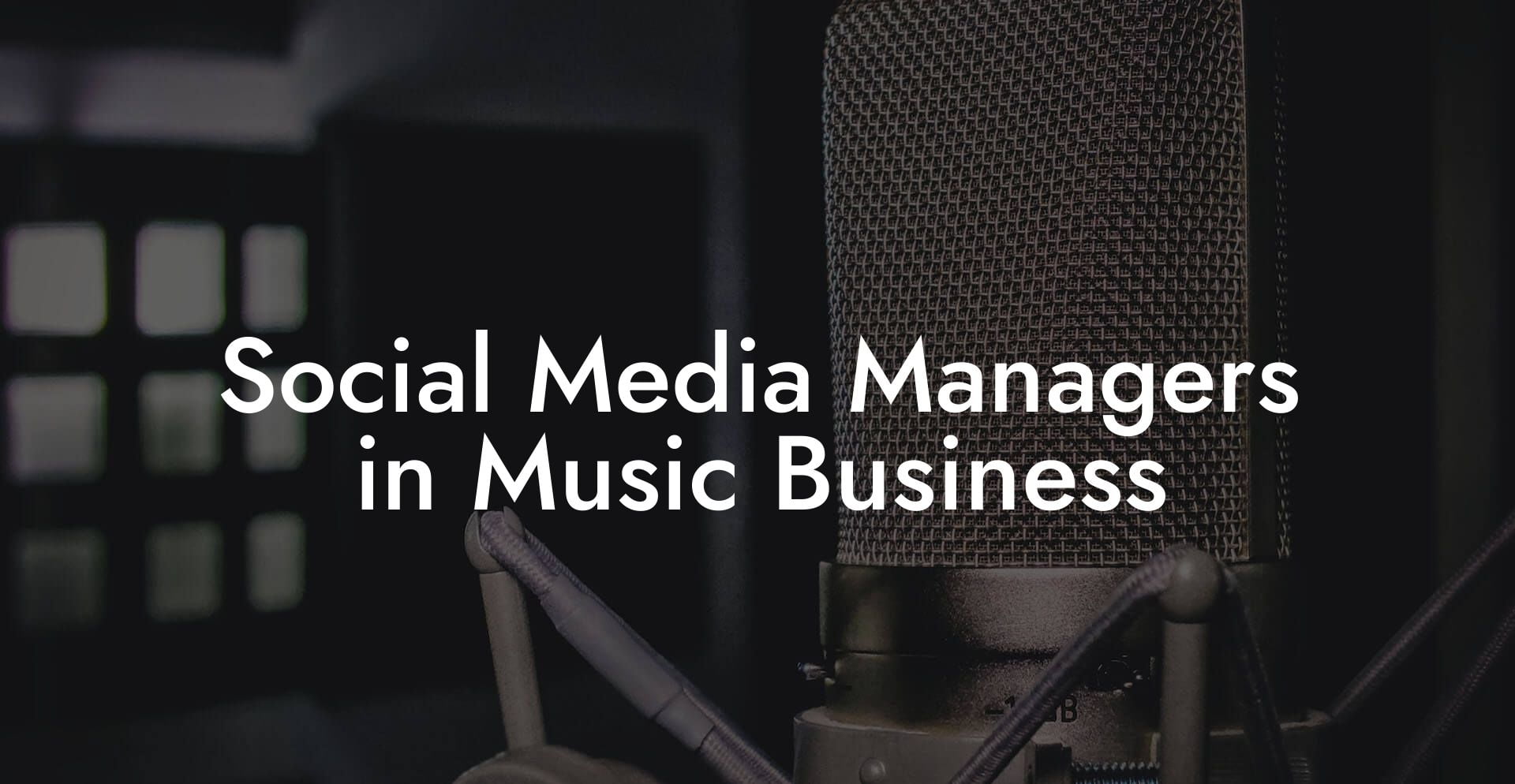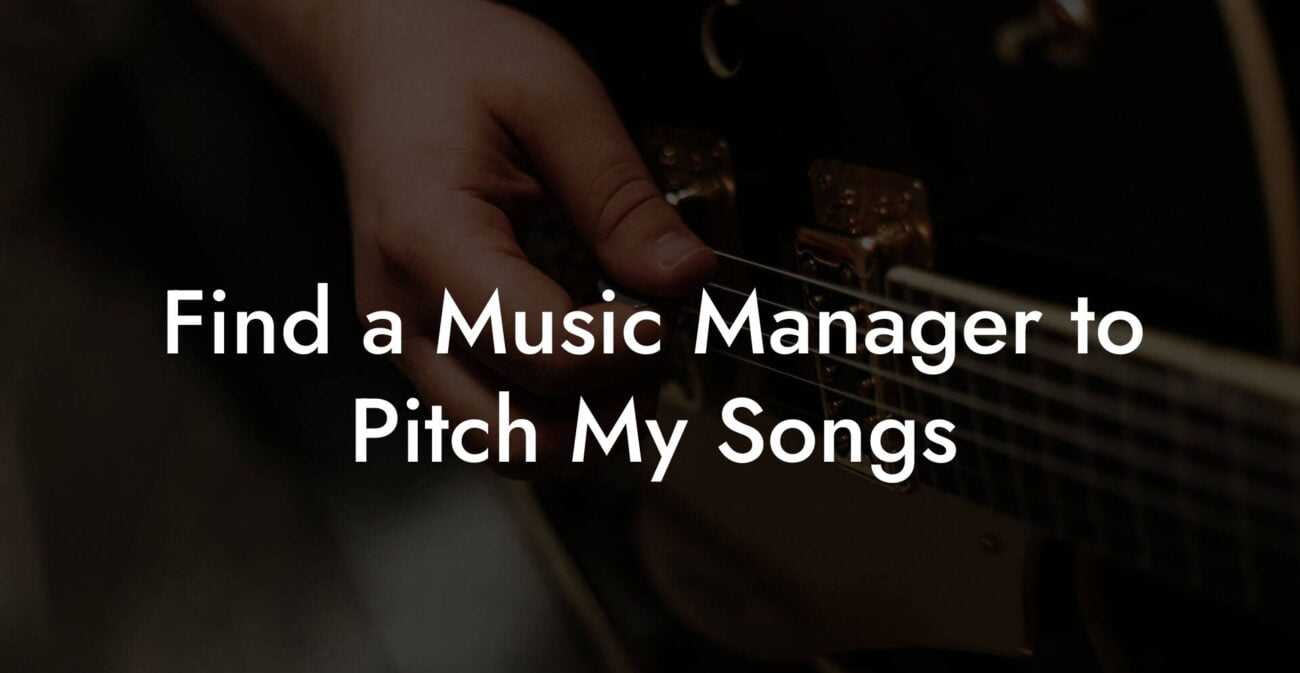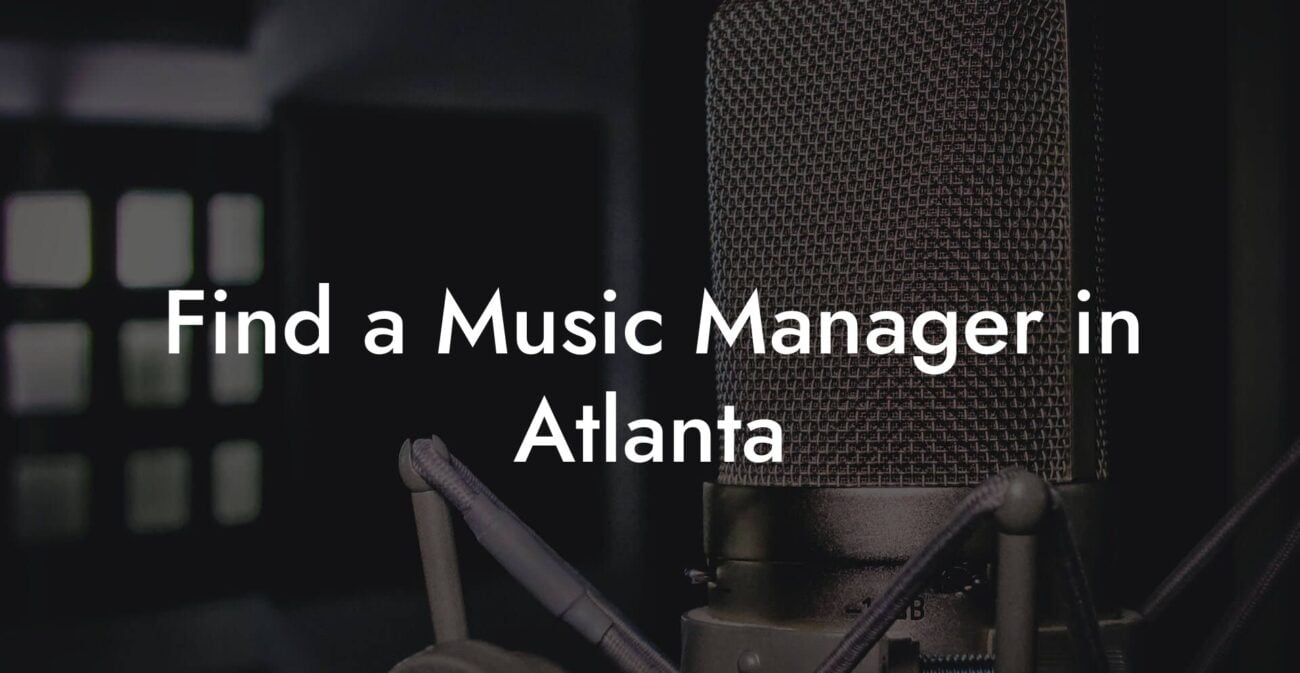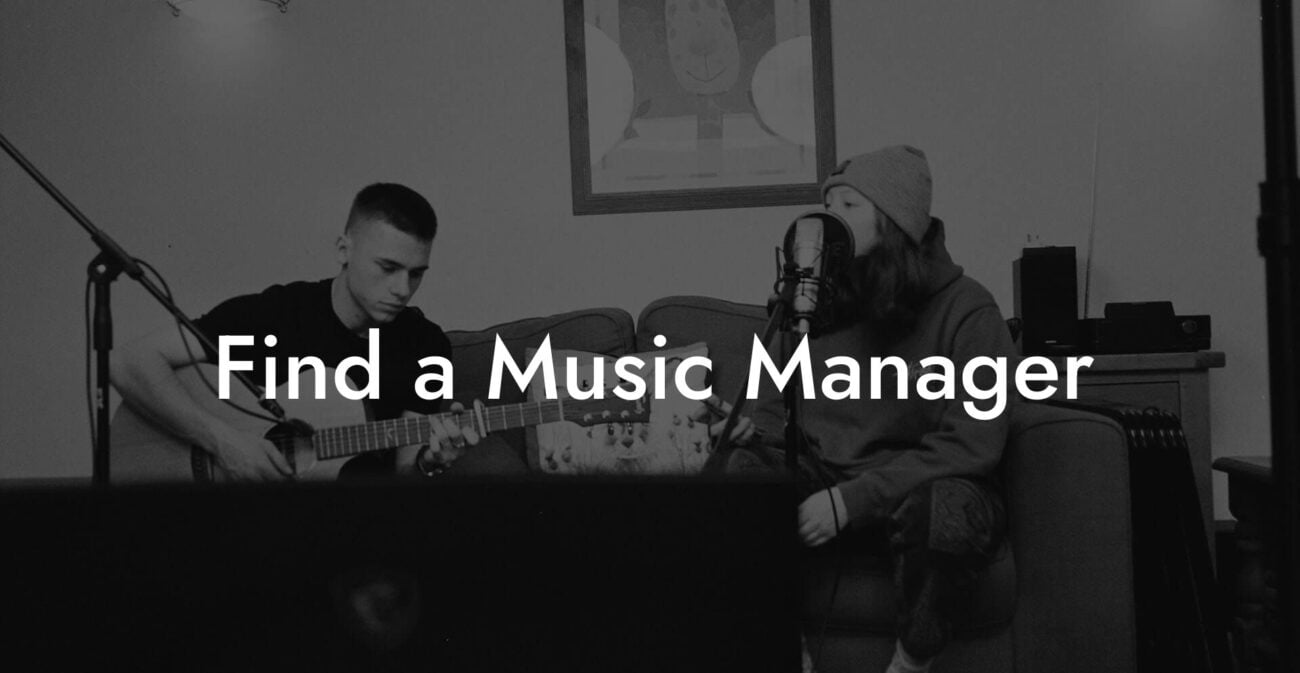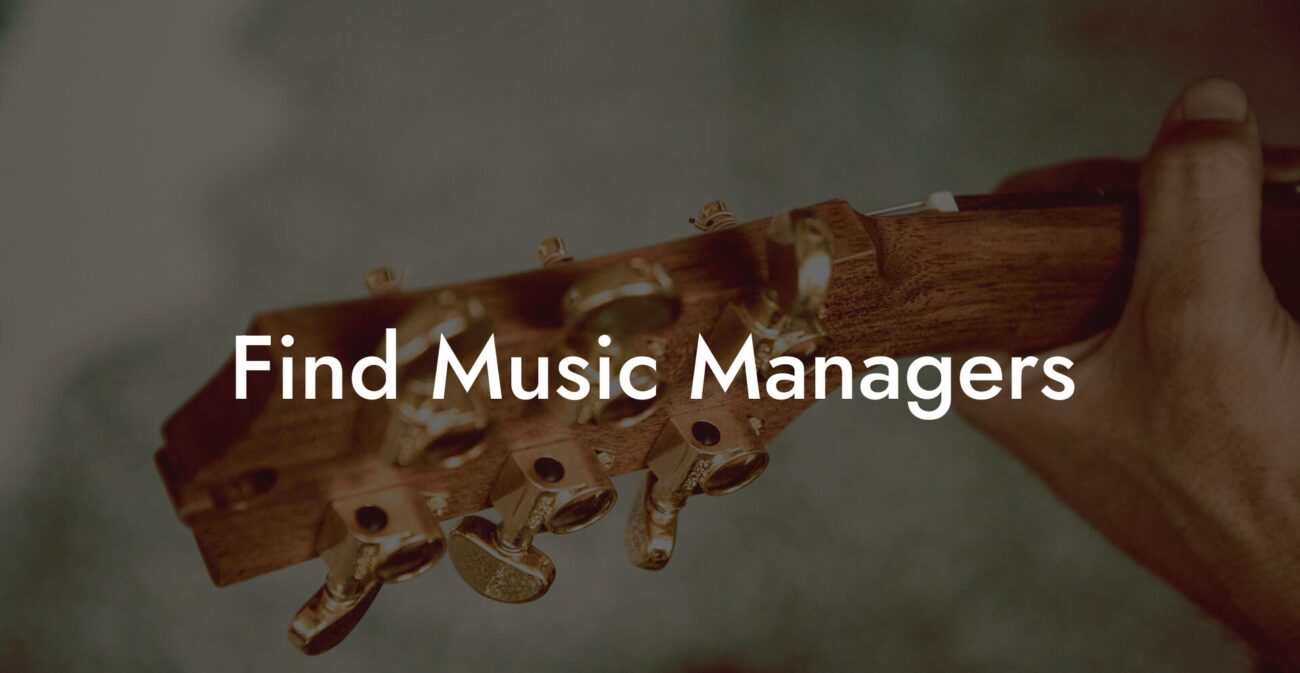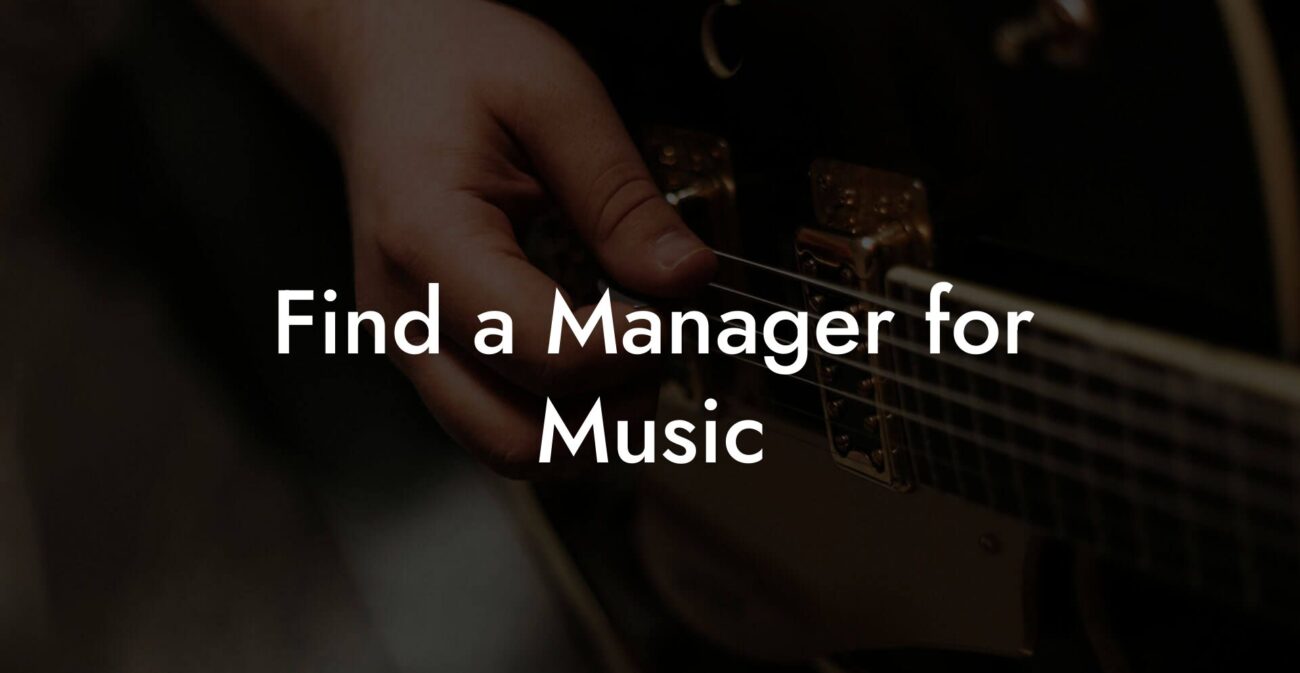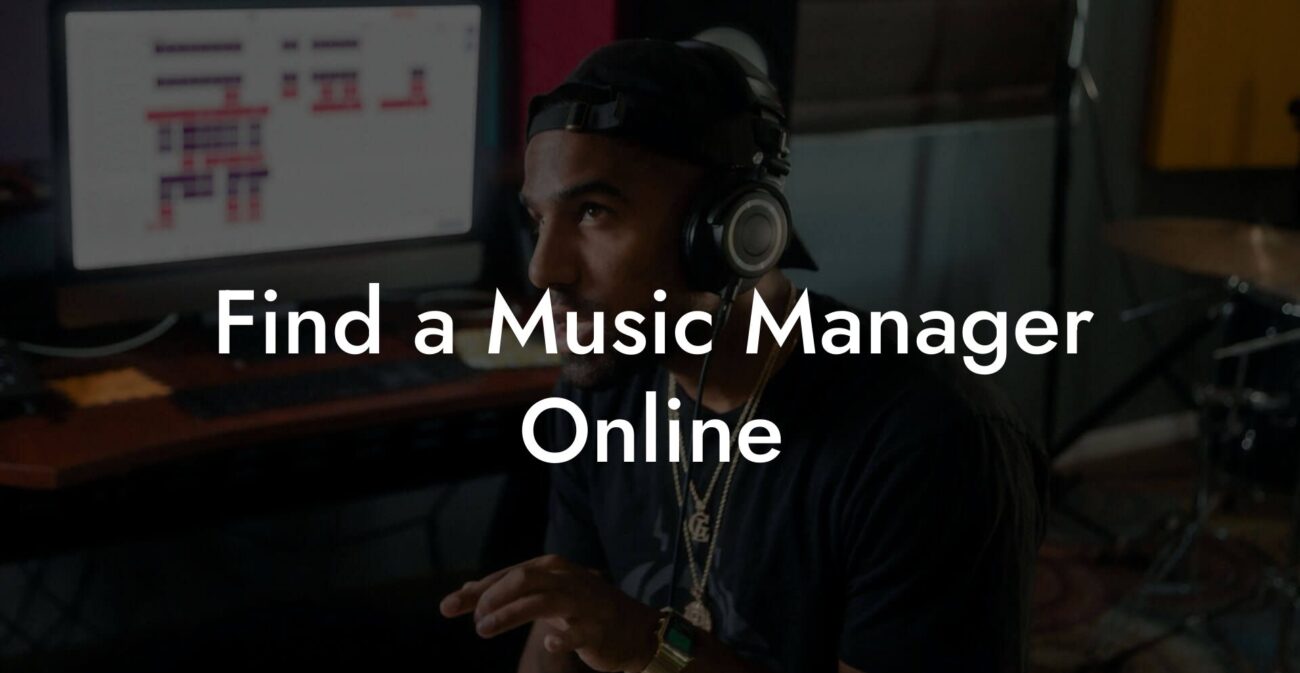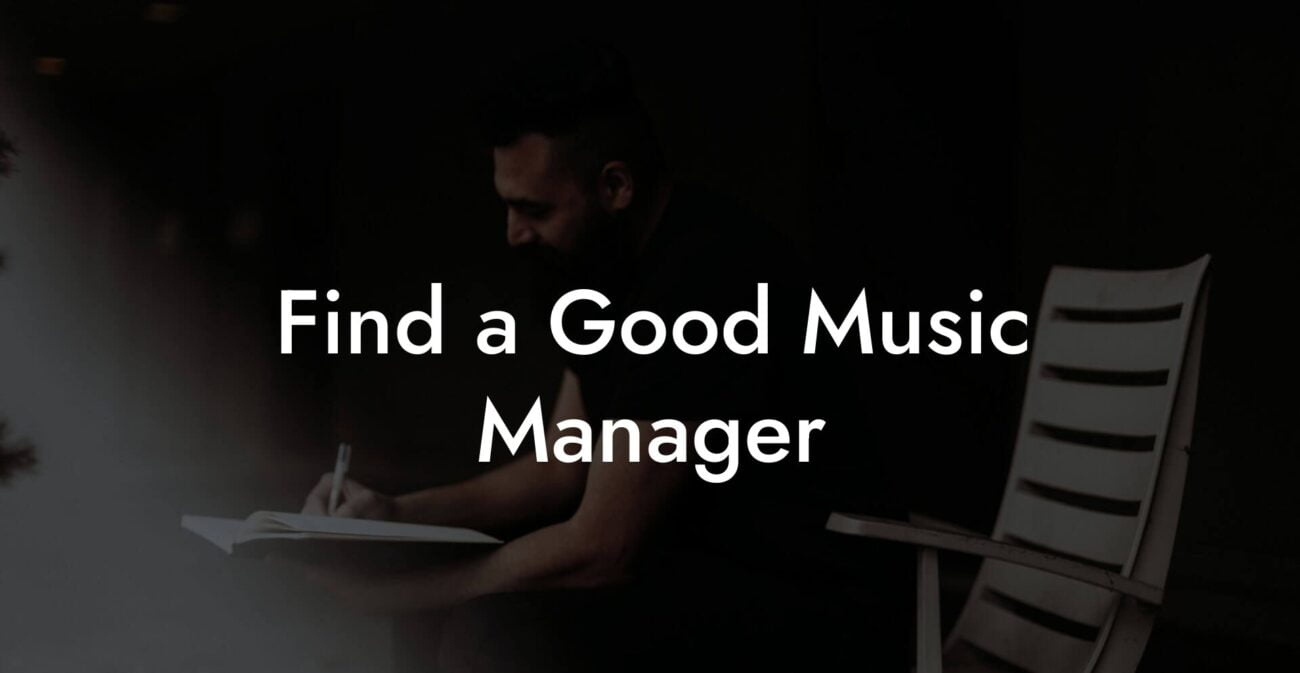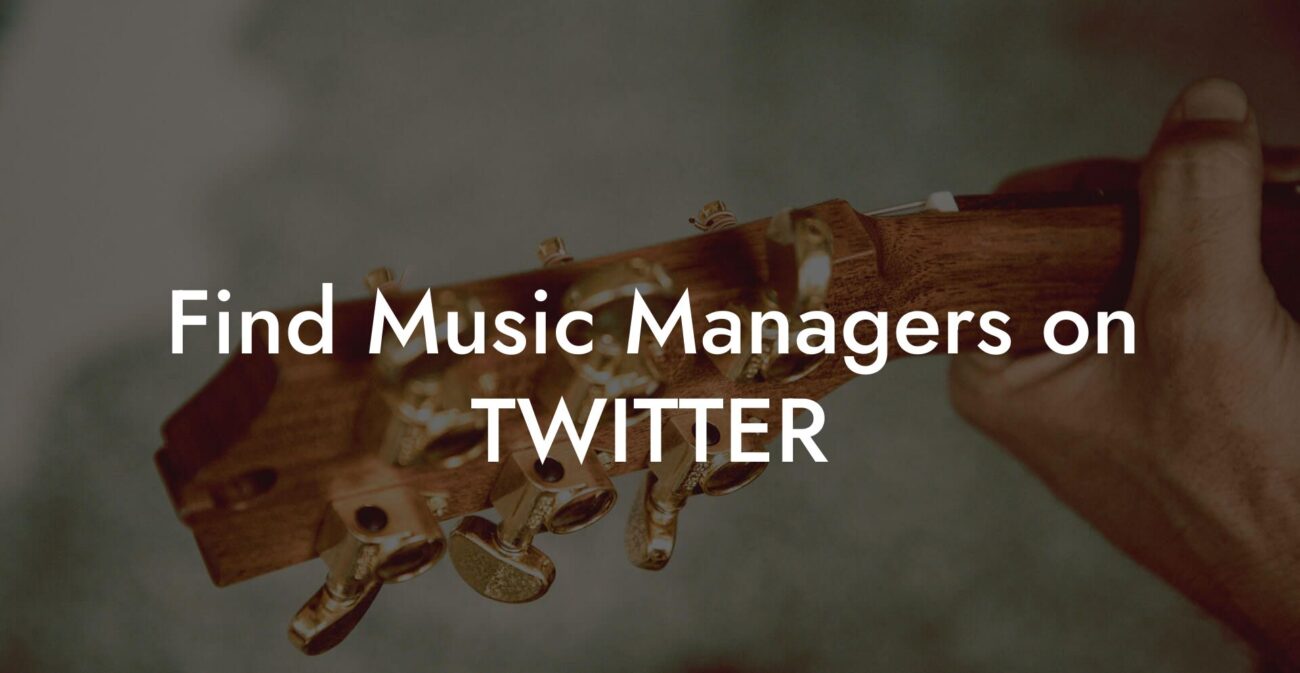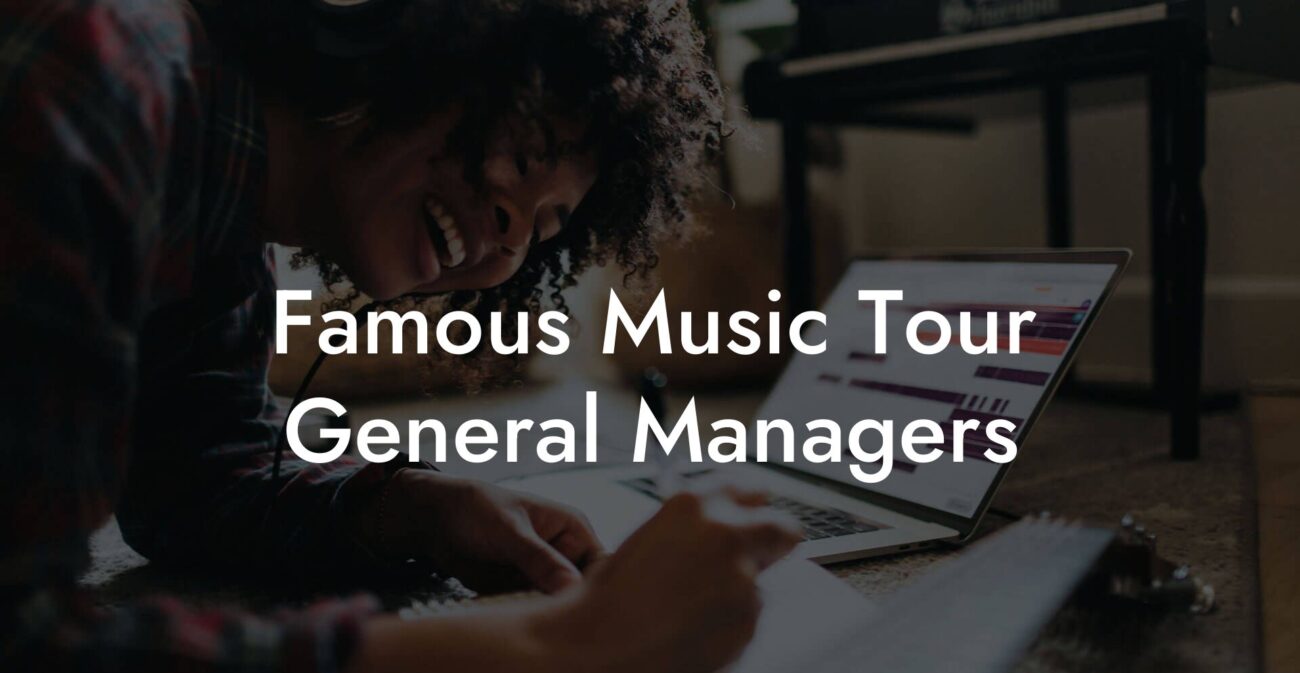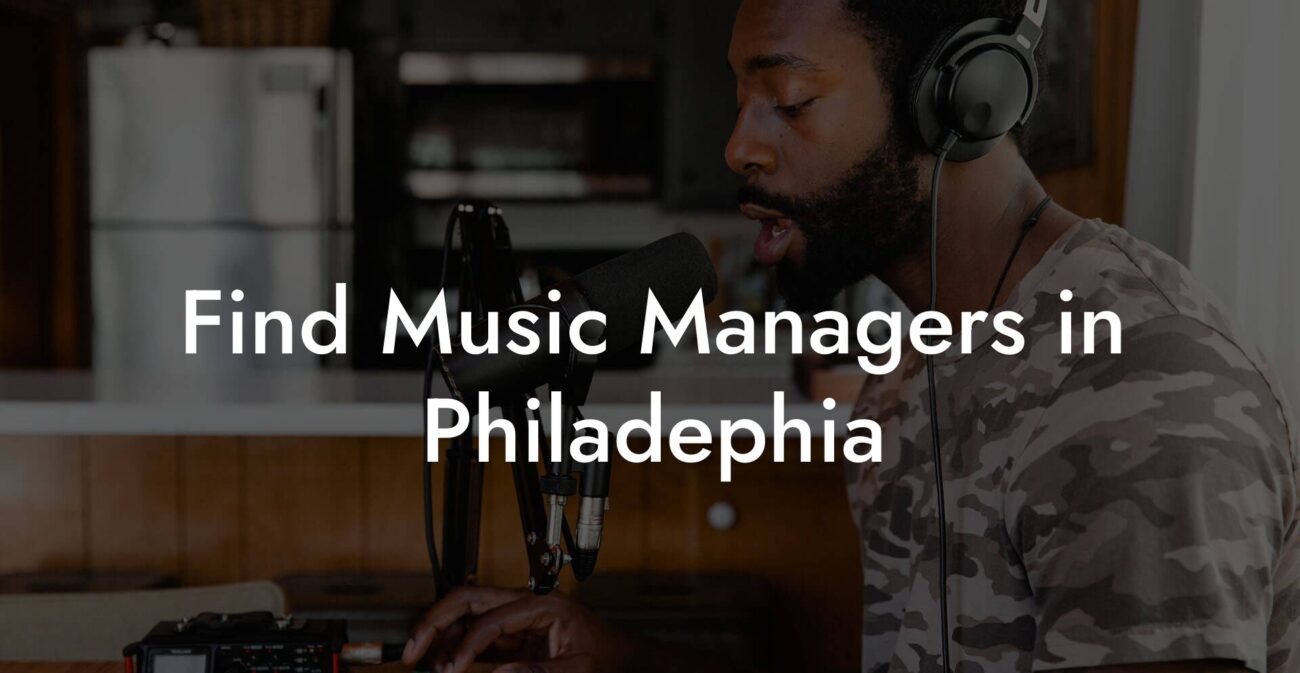The music industry has significantly evolved over the years. With the advent of the internet and social media, the dynamics have shifted, opening up opportunities for social media managers in the music business to make a greater impact. Analyzing the role and significance of these experts can help us understand their relevance in today's fast-paced and digital world.
Social Media Managers in Music Business Table of Contents
The Essential Role of Social Media Managers
The Essential Role of Social Media Managers
Social media managers play an essential part in the music industry today. Their responsibilities include:
- Creating compelling content to engage fans and increase followers.
- Monitoring trends and using them to enhance the artist's visibility and reach.
- Maintaining a consistent brand voice and ensuring an artist's online reputation.
Creating Engaging Content
In today's digital age, creating engaging content is key. Social media managers are instrumental in executing this task. They conceptualize and develop content that resonates with a particular audience, thereby, amplifying the visibility of an artist.
Monitoring Trends and Utilizing Them
Being updated on the latest social media trends and how they can be incorporated into their strategy is a critical role of a social media manager. They utilize these trends to ensure the artist remains relevant in the ever-evolving digital world.
Maintaining a Consistent Brand Voice and Reputation
One of the biggest challenges in the music industry is maintaining a consistent brand voice while adapting to ever-changing trends. Social media managers ensure continuity and make sure that changes don't affect the artist's reputation.
Write Hit Songs Like a Professional Songwriter
The ultimate songwriting tool that takes your creative vision to the next level! With just a few clicks, you can unleash your inner songwriter and craft a hit that's uniquely yours. You own it.
Impact of Social Media on Music Promotion
Reach, Engagement, and Fanbase
Social media platforms are key to reaching out to a wider audience. They offer a perfect place to interact with fans and engage them through personal stories, live performances, and releases.
Direct Marketing and Promotion
Through social media platforms like Facebook, Twitter and Instagram, artists can market their music directly to their fans. This makes promotion affordable and efficient.
Measuring Success
These platforms also provide data that can be used to measure success. By analyzing this data, artists can make informed decisions about their music and promotional strategies.
Social Media Managers in Music Business Example:
This can be demonstrated with a real-life example of how a then unknown artist Lil Nas X, through skillful use of social media, popularized his song 'Old Town Road'. A social media campaign using memes and clever posts helped the song go viral, eventually topping the Billboard 200 chart.
It's clear that social media managers in the music industry play a vital role in promoting and maintaining artists' online presence. They contribute significantly to the success of artists and their music. If you find this article insightful, do share it in your network and help others understand the influence of social media in the music industry.
Frequently Asked Questions
What does a Social Media Manager in the music business do?
A Social Media Manager in the music business is responsible for creating and executing a social media strategy for artists, bands, record labels, or music festivals. They manage social media profiles, engage with fans, create content, post updates, and analyze the performance of the social platforms. Their goal is to increase an artist's presence, fan engagement, and ultimately, contribute to the artist's success.
Why is social media important for musicians and the music industry?
Social media provides a direct line of communication between artists and their fans. It's essential for building a brand, sharing new content, promoting concerts and merchandise, and fostering a community around music. In the digital age, social media is a powerful tool for musicians to grow their audience and for industry players to market and sell music effectively.
How can a Social Media Manager help an artist's career?
A Social Media Manager helps to elevate an artist's online presence, ensuring that their brand message is consistent across all platforms. They engage existing fans while attracting new ones, promote upcoming releases or events, and keep the artist's profile active and engaging. This not only broadens the artist's reach but can significantly impact their career growth.
Can a Social Media Manager influence the revenue of musicians?
Absolutely. By effectively promoting music releases, concerts, and merchandise, a Social Media Manager can directly influence sales and revenue. Their strategies can lead to increased streaming numbers, ticket sales, and overall marketability of the artist.
What are the key skills a Social Media Manager should have in the music business?
Key skills include a deep understanding of social media platforms, content creation, brand development, marketing strategies, engagement analysis, excellent communication, and a passion for music and the industry.
What tools do Social Media Managers in the music business typically use?
Social Media Managers typically use a range of tools, including social media scheduling platforms (like Hootsuite or Buffer), graphic design software (such as Adobe Creative Suite or Canva), analytics tools, and sometimes customer relationship management (CRM) systems to keep track of interactions with fans and industry contacts.
How do you measure the success of a social media campaign in the music industry?
Success can be measured in various ways, including engagement rates, follower growth, reach, conversions to sales or streams, and the overall impact on an artist's brand visibility. Effective Social Media Managers set clear objectives and metrics before a campaign and analyze data post-campaign to assess its performance.
What social media platforms should musicians be on?
Musicians should focus on platforms where their target audience spends the most time. Commonly, this includes Instagram, Twitter, Facebook, TikTok, and YouTube. However, it's also essential to consider niche platforms that may be relevant to specific music genres and demographics.
How often should musicians post on social media?
Posting frequency can vary, but consistency is key. Most experts recommend daily posts or stories on platforms like Instagram and regular updates on other platforms. The important thing is to keep fans engaged without overwhelming them.
What types of content work best for musicians on social media?
Content that resonates best often includes behind-the-scenes looks, teasers for new music, announcements, live performance snippets, and interactive content like Q&As or polls. Authenticity and personal touches tend to perform well, helping fans feel connected to the artist.
How important is video content in a musician's social media strategy?
Video content is exceptionally important as it is highly engaging and favored by social media algorithms. This includes music videos, live performances, rehearsals, and personal messages from the artist. Platforms like TikTok and YouTube are particularly video-centric and offer great opportunities for audience expansion.
Is it necessary to have a large following to benefit from social media marketing?
No, the quality of engagement with the audience often outweighs sheer numbers. A smaller, dedicated fan base can be more effective for building a loyal community and achieving higher engagement rates. However, growing your following is still an important goal for increased visibility.
How do Social Media Managers handle negative feedback or comments?
Professional Social Media Managers address negative feedback with tact and empathy. They often have protocols in place for dealing with various types of negative comments, whether it's addressing genuine concerns or managing trolls. The key is to maintain the artist's reputation and fan relationships.
What trends are currently shaping social media marketing in music?
Current trends include the use of short-form video content, the rise of social commerce where fans can shop directly via social media, increased live streaming of performances, and leveraging data-driven personalization to connect with fans on a deeper level.
How does a Social Media Manager stay up-to-date with the constantly changing social media landscape?
Staying informed through industry news, attending webinars, participating in professional groups, and networking with peers are all crucial ways a Social Media Manager stays current. Continuous learning and adapting to new tools and trends are part of the job.
What is the role of analytics in social media management for musicians?
Analytics play a significant role in understanding audience behavior, content performance, and the overall impact of social media activities. They help Social Media Managers make informed decisions to refine strategies, invest wisely in advertising, and prove ROI.
Should Social Media Managers collaborate with other members of an artist's team?
Yes, collaboration is essential. Social Media Managers often work with publicists, managers, and the artists themselves to align social media efforts with broader promotional campaigns, release schedules, and branding objectives.
How can an artist differentiate themselves on social media?
An artist can stand out by showcasing their unique personality, engaging with fans in a genuine way, sharing exclusive content, and creating an aesthetic that is immediately recognizable. Innovation and authenticity are critical.
Can social media be used for scouting new music talent?
Definitely. Social media platforms are increasingly utilized as tools for discovering and signing new talent. Artists who can build a strong presence and demonstrate engagement with a fan base are often attractive to record labels and talent scouts.
What is the future of social media in the music industry?
The future looks to be increasingly interactive and immersive, with advancements in virtual reality and augmented reality likely playing a part. Social platforms may also further integrate with music streaming services, providing more seamless experiences for fans.
For more interesting articles and helpful guides on creating the perfect music, keep exploring Lyric Assistant.

